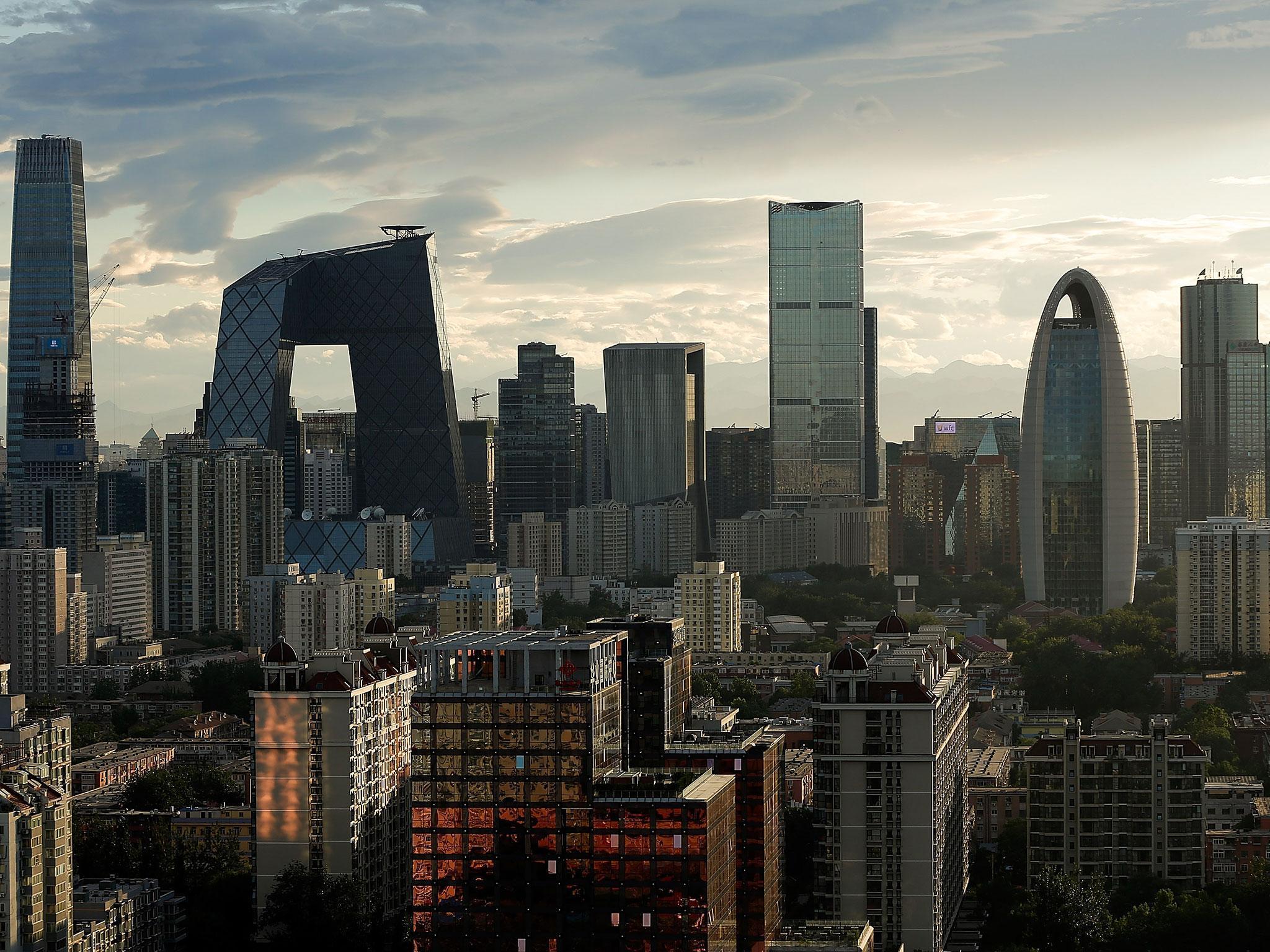Beijing is sinking into the ground, says report
Rapid expansion in China's capital is having a profound geological effect

Beijing is sinking, according to a new study of the city.
Using advanced radar, researchers found China’s capital is dropping by up to 10.6cm (about four inches) a year because of land subsidence, described as a “severe geohazard” in a new report.
The phenomenon also threatens “the safety of the public and urban infrastructure”, according to the paper, published in journal Remote Sensing.
China's runaway economic growth has seen a building boom in Beijing, but the city now appears to have reached a geological tipping point.
It is located on a dry plain and has relied on groundwater underneath. Drained by 10,000 wells which dot the area, this water is used for human consumption, agriculture and development.
As the water is extracted, this causes the ground to drop – albeit at a rate unnoticeable to Beijing’s inhabitants.
The sheer weight of the developments above land on a weaker base can also contribute to the problem.
The most significant subsidence was observed in Beijing’s Chaoyang district – the city’s main business area – which has seen extensive development since the 1990s.
Regulation aimed at controlling water consumption in and around the city has been slack, further complicating efforts towards tackling the issue.
“I wasn’t particularly surprised by the findings,” study co-author Professor Zhenhong Li told The Independent. “Many other cities in China are affected.”
Beijing, while being the fifth most water-stressed city in the world, is not the only place in China affected by subsidence – mor than 50 other cities are known to suffer from the problem.
In Tianjin – the site of a devastating chemical explosion – the city is sinking around 17 centimetres a year, according to Professor Li.
Shanghai has also fallen by more than six feet (about 1.8m) since 1921. Elsewhere, more than 1,000 wells in Xi'an, capital of Shaanxi province, were closed after it was revealed 58 square miles of land had sunk at least 20cm since 1959, according to China Daily.
The researchers are investigating what effect on Beijing’s infrastructure and buildings land subsidence might have, but it is currently unclear what form this could take.
Professor Li stressed this work is still ongoing, but said there could be “some impact”, particularly on the high speed railway system.
Despite this, Professor Li believes the problem can be controlled. “Subsidence in Shanghai was very serious 17 to 20 years ago,” he said, “but it’s under control now.” Laws imposed in 2000 by the local government limiting water use proved effective.
However, large supplies of water are needed to fuel growth in Beijing. Professor Li hoped planned infrastructure projects bringing water to the city will mean the wells can be shut.
Join our commenting forum
Join thought-provoking conversations, follow other Independent readers and see their replies
Comments
Bookmark popover
Removed from bookmarks